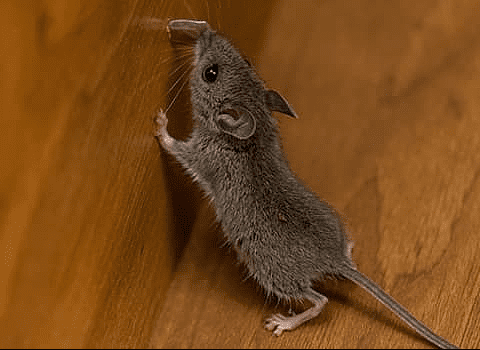Mouse Control Newcastle, Sunderland & Durham
Fast & Reliable Mice Removal in the North East
For professional mouse control Newcastle households and businesses can rely on, Pest Shield offers safe, effective treatments across Sunderland, Durham and the wider North East. Mice infestations spread quickly and cause serious damage, so fast action is essential. Our qualified technicians use proven baiting, trapping and proofing methods to eliminate rodents and protect your property.
Why Mouse Control Matters
Mice breed at an alarming rate. A single female can produce dozens of offspring every year, meaning a small problem soon becomes a full infestation. Left untreated, mice:
Chew wires, increasing the risk of fire
Damage pipes, insulation and furniture
Contaminate food with droppings and urine
Spread diseases such as salmonella and listeria
DIY traps or supermarket poisons rarely solve the issue. Professional pest control is the only reliable way to eradicate mice and prevent them returning.
Signs of a Mouse Infestation
Mice are nocturnal, so you may not see them directly. Common warning signs include:
Small, dark droppings (up to 75 per mouse, per day)
Scratching noises in lofts, walls or under floorboards at night
Gnaw marks on food packaging, wires and woodwork
A strong, musty odour near nests
Urine trails or greasy smear marks along walls
Nests in loft insulation, cupboards or outbuildings
If you spot any of these indicators, call Pest Shield immediately for a same-day survey.
Our Mouse Control Process
We provide a structured, proven treatment plan:
Survey & Inspection – A detailed assessment to identify entry points, food sources and nesting sites.
Baiting & Trapping – Tamper-resistant bait stations and targeted traps, placed safely in key locations.
Follow-Up Visit – Removal of carcasses, inspection of bait stations and application of sanitising spray where required.
Proofing Recommendations – Advice or quotes for sealing gaps and preventing future access.
Most infestations are brought under control within 1–2 visits.
Preparing for Treatment
To make treatments more effective, we recommend:
Leaving droppings and damage untouched for inspection
Removing food waste and storing pet food securely
Cleaning crumbs from under appliances and cupboards
Informing us of activity hotspots and checking if neighbours are also affected
After Treatment – What to Expect
Baiting results: It may take a few days before mice begin feeding, but this ensures colony-wide eradication.
Odour control: Some mice may die in inaccessible areas. Any smell usually fades quickly; we dispose of remains where accessible.
Sanitisation: Our technicians can apply professional biocide sprays to reduce health risks after an infestation.
Preventing Future Problems
Our service doesn’t stop once mice are gone. We provide practical prevention advice:
Seal gaps larger than 1cm around pipes, vents and brickwork
Store food in airtight containers and keep bins sealed
Trim vegetation close to walls and manage compost responsibly
Avoid leaving bird food or pet food accessible outdoors
Specialist Mouse Control Services
Alongside treatments, Pest Shield offers:
Mouse Proofing – Long-term solutions to block entry points and keep properties rodent-free
Loft Clearance & Insulation Replacement – Removal of contaminated loft insulation, full sanitisation, and installation of new insulation
Local Expertise Across the North East
We provide mice removal Sunderland, Durham mouse control, and full coverage of NE, SR, TS, DH and DL postcodes. From Newcastle city centre to Teesside, our technicians are local, responsive and available for both domestic and commercial properties.
Book Mouse Control Today
Don’t let mice damage your property or put your health at risk. Pest Shield provides fast, safe and effective mouse control across Newcastle, Sunderland, Durham, Gateshead, Darlington, Hartlepool, Middlesbrough and Stockton-on-Tees.
📞 Call 0191 7166647 or contact us online.
Serving NE, SR, TS, DH and DL postcodes across the North East.


